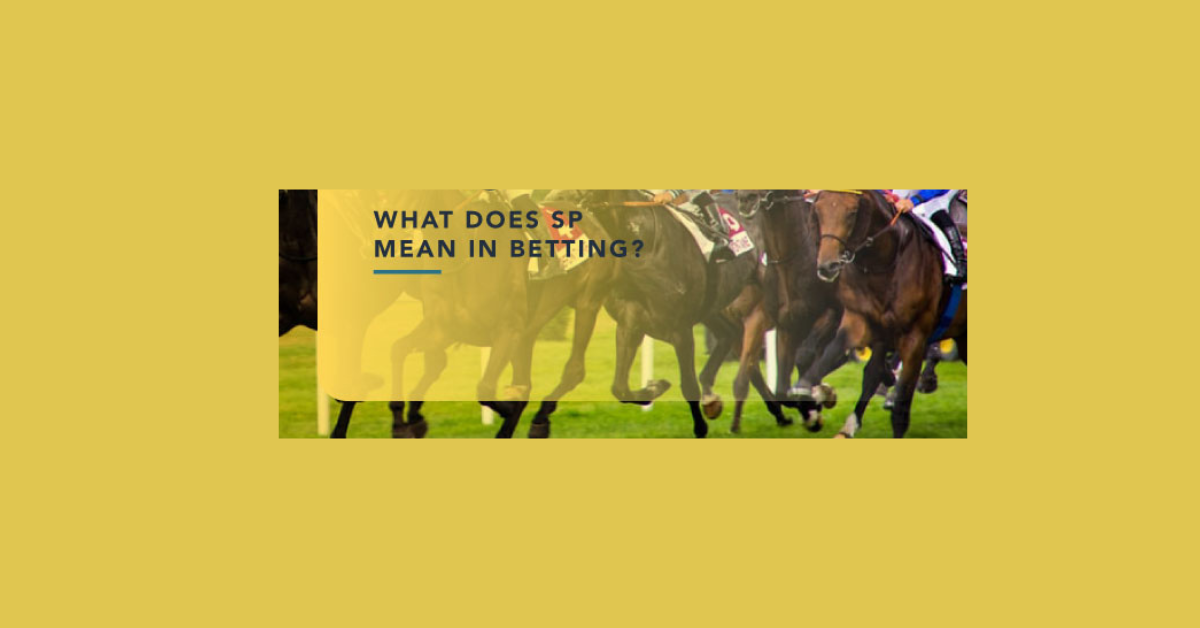Understanding SP in Horse Betting
SP in horse betting refers to Starting Price, which is the odds on a horse at the start of a race. The SP is determined by the average odds offered by bookmakers just before the race begins. It is a key factor that influences the potential payout for bettors depending on their wager.
Understanding how SP works in horse racing is essential for those looking to place informed bets. The SP reflects the final odds of a horse, which can fluctuate based on various factors such as the horse’s form, jockey, trainer, and market conditions. Bettors can use the SP to gauge the perceived chances of a horse winning and make calculated decisions on their bets.
How SP Works in Horse Racing
The starting price (SP) in horse racing is crucial for bettors looking to place wagers on a race. SP is the final odds on a horse when the race begins, determined by the on-course bookmakers and the total amount of money wagered. These odds are not fixed in advance, unlike fixed odds, and can fluctuate right up until the race starts based on the betting patterns observed.
Understanding how SP works is essential for punters as it directly impacts the potential returns on their bets. The SP is influenced by various factors such as the form of the horse, the reputation of the jockey, the track conditions, and the amount of money being bet on each horse. Being able to analyze these elements can help bettors make more informed decisions when placing their bets on horse races.
Factors Affecting SP in Horse Betting
When considering the factors that can influence the Starting Price (SP) in horse betting, one must take into account various aspects that play a significant role in determining the odds. The form of the horse, recent performance, and jockey’s experience are key factors that can affect the SP. A horse that has been consistently performing well in its recent races is likely to have lower odds compared to a horse with a history of poor performance.
Moreover, external factors such as weather conditions, track conditions, and the size of the field can also impact the SP in horse betting. For instance, a horse that excels on a certain type of track or in specific weather conditions may see its odds change based on these variables. Additionally, the size of the field can affect the SP as well, with larger fields often leading to more competitive odds for each horse.
Importance of SP in Horse Racing
The Starting Price (SP) in horse racing holds significant importance for both bettors and racing enthusiasts alike. This price is crucial as it ultimately determines the payout for winning bets. Unlike fixed odds, which are set in advance, the SP is determined at the start of the race based on the odds offered by the bookmakers and the total amount of money wagered on each horse.
The SP serves as a fair reflection of the horse’s actual chances of winning a race, making it a valuable tool for assessing the field. It provides an unbiased estimate of a horse’s performance, taking into account all available information leading up to the race. Bettors often rely on the SP to guide their wagering decisions, as it offers insights into the perceived probability of each horse winning and allows for informed betting strategies to be developed.
Difference Between SP and Fixed Odds in Horse Betting
In horse betting, the difference between Starting Price (SP) and fixed odds lies in how the odds are determined. With fixed odds, the odds are set at the time of placing the bet and do not change regardless of how much money is wagered. This means that if you place a bet on a horse at 5/1 odds, you will receive a payout at those exact odds if your horse wins.
On the other hand, SP is the official price of a horse at the start of the race when the event begins. Unlike fixed odds, the SP is not determined until the race is about to start and is based on the bets placed by the public. This can result in the odds changing right up until the start of the race, making SP a more dynamic and potentially lucrative option for some bettors.















